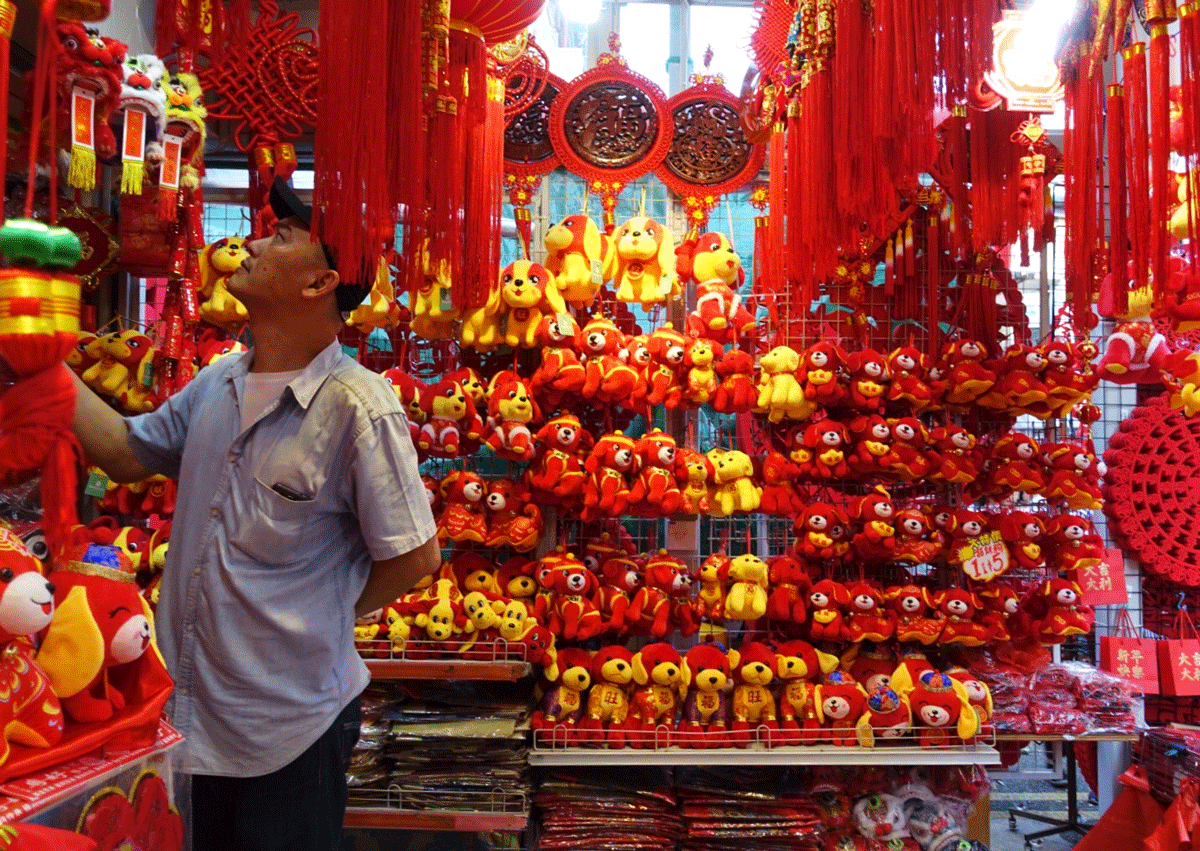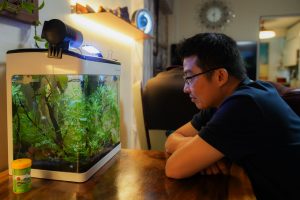“Uncle”—who later introduces himself to me as Chan—turns to stare blankly at me, “You want me to go with you? To the Chinatown Market?” he asks.
I was desperate, you see. Chinese New Year was less than two weeks away, and I had yet to peel a pomelo, see a lion dancing, or visit Chinatown.
Of course I didn’t tell him all of that. I simply nodded and said, “We can just walk around, talk.”
“Wah, you want to talk me?” He laughs. “I drive taxi for more than 15 years already, no one want to talk to me before. Okay, let’s talk.”
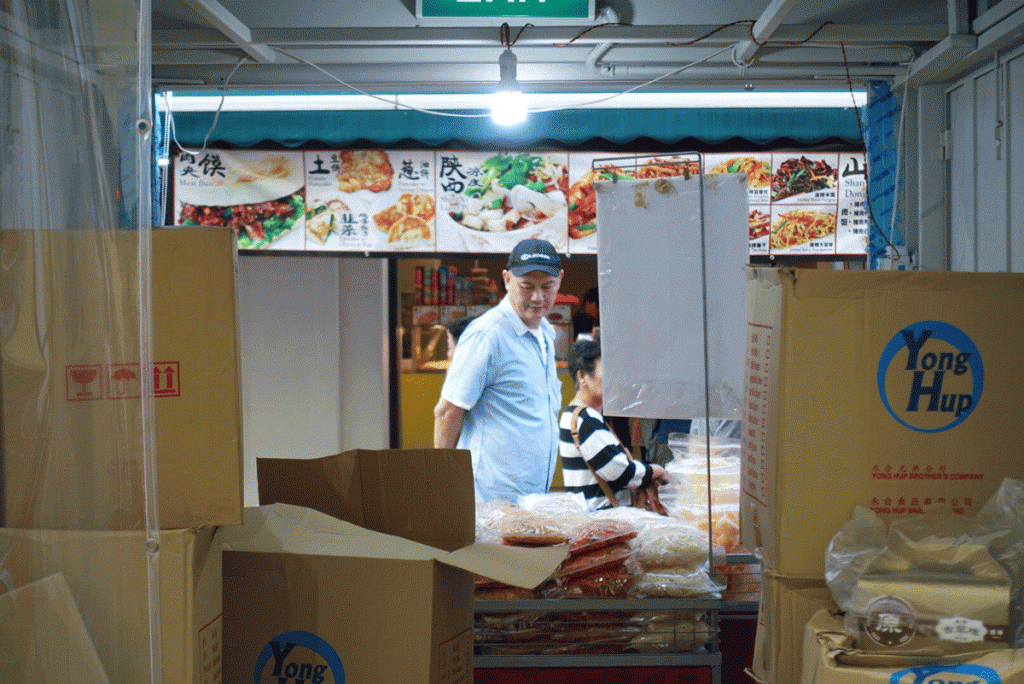
Today, as we drive up the streets of Dakota and turn onto Nicoll Highway, I’m all ears.
“I don’t want to bore you. I think you have encountered many taxi drivers, all very talkative, all talk about the same things, passengers, government. It’s the same story, nothing new,” Chan tells me.
So instead, we talk about life.
Chan is 57 this year, and while he’s still got a several years till retirement, he’s already looking forward to it. “If I were young like you, I’d try something else besides taxi driving. If I can retire, I’ll retire now,” he says, shaking his head as we pass under a $1.50 ERP gantry.
“What’s the point of working my whole life? Sometimes you think that the meaning of life is to work work work, but you have only one life, you must enjoy.”
Enjoyment to Chan is simple. He doesn’t need a fancy car or a house by the sea. All he wants to do when he retires is to be a bum, to wake up when he wishes, to eat without worrying and most importantly, to go fishing.
While he chats happily about retirement, he grows sombre when we move on to the subject of death.
“You can work all your life but when the time comes, you are finished. No history. Unless you are Lee Kuan Yew. If you are Lee Kuan Yew, you have history. For us, no one remembers us.”
“My children will remember me, my grandchildren maybe, but after that, no one.”
Chan may be a realist and not one to mince his words, but it’s still a sorry truth to hear. In the minutes that follow, the both of us fall silent, each lost in our own thoughts—that is, until Chan makes a right turn onto Eu Tong Sen street.
We’re here.
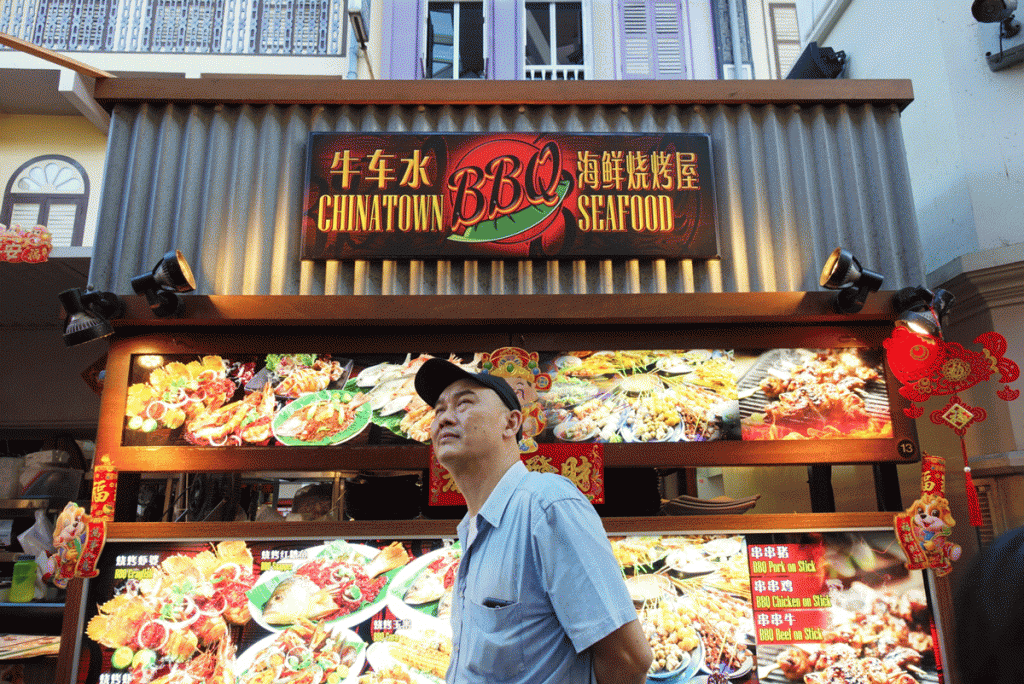
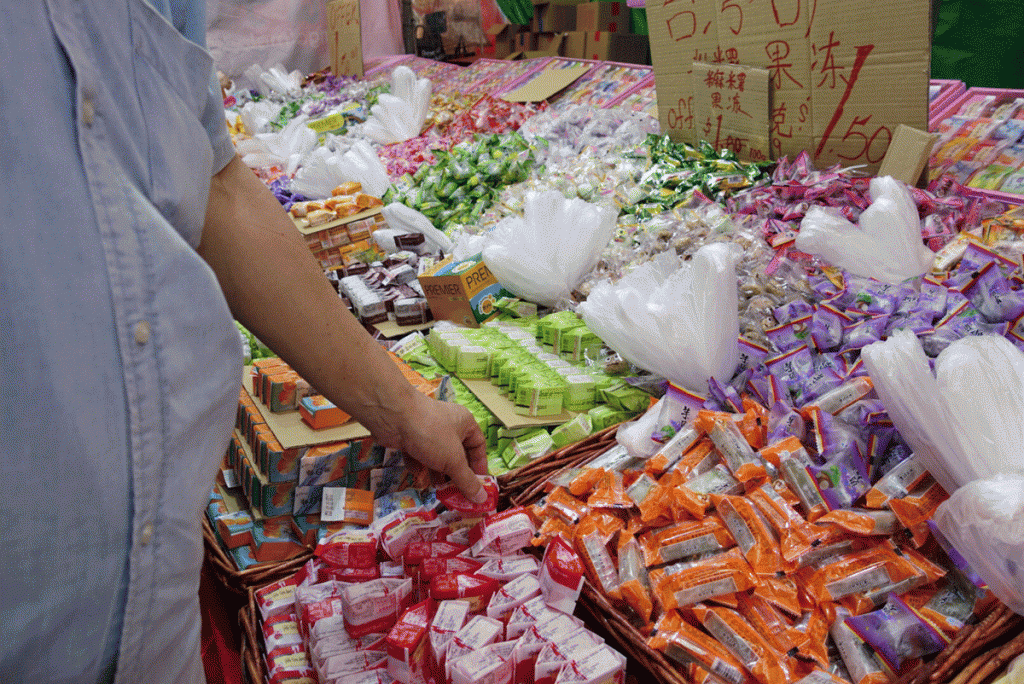
He’s wrong. Everywhere we look, there are people.
Throngs of sweaty Singaporeans shuffle their way slowly through the narrow lanes of Pagoda street, flanked by some 420 stalls selling everything from super-sized lanterns to waxed duck.
Shop helpers, equipped with microphones, stand in the middle of the street hawking their wares and handing out free samples to anyone brave enough to take them. There’s even an giant inflatable Cai Shen Yuan perched on the roof of a store surrounded by red plastic dragons. It’s complete and utter chaos.
I love it—the bustling crowds, the frenzy and the food. Chan, on the other hand, doesn’t.
“I don’t know why so many people come here,” he frowns. “Last time we stayed in the countryside, the Kampung. There got shops but all the stuff is very normal. If you want the more expensive stuff or more variety, you have to come to Chinatown to buy.”
He has a point. Nowadays, just about anything can be found on the shelves of NTUC.
“Plus,” he says, as we shuffle past the third shop of the day selling jelly imported from Taiwan, “All the stores are selling the same thing.”
As we stop in front of the store to take in the brightly coloured packets of strawberry, blueberry and raspberry flavoured jellies, a salesman shoves a packet into Chan’s hand, insisting he try it. Once the man’s back is turned however, Chan promptly hands it over to me. He shakes his head, “Too sweet.”
It’s strawberry jelly. I devour it in half a second.
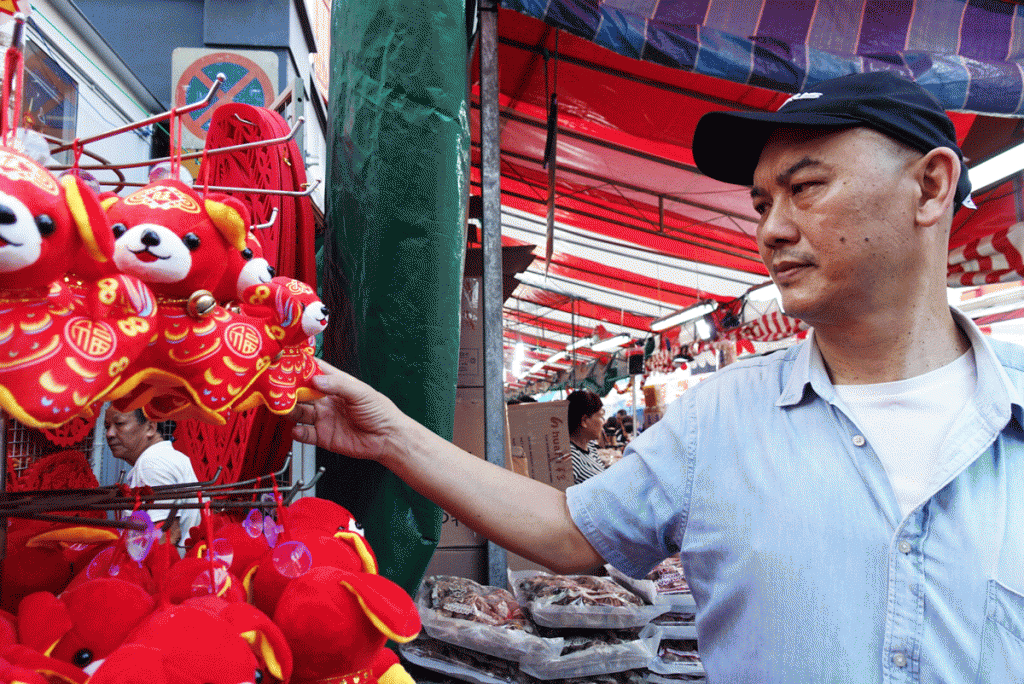
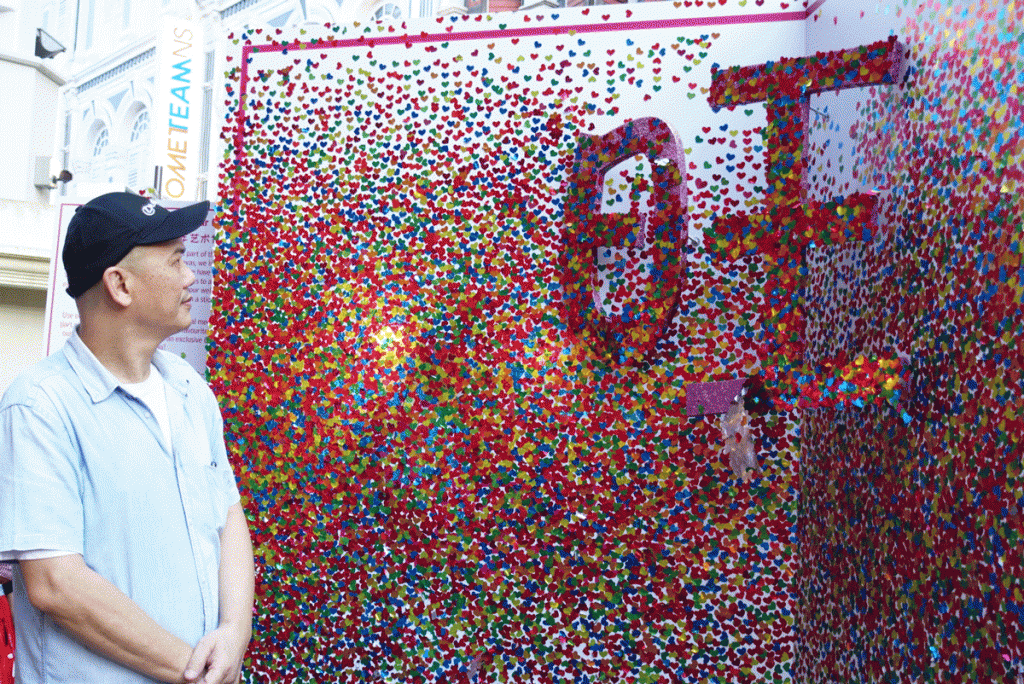
“It was no surprise last time,” he shrugs. “Families with ten, twelve children, all have. Now, four, five children is wow already. It’s hard.” He pauses. “Actually, having two children is also hard now.” (Damn straight!)
With such a large family to feed, Chan didn’t have the most lavish of childhoods. Meat wasn’t a daily affair while soft drinks were considered a rare treat. It’s a far cry from the line of kids we spot queueing up to buy $5 coconut water.
“Last time is only New Year you have all these things. Once a year one new shirt, shorts and shoes. Now buying new clothes is nothing, everyday buy.”
Chan, however, doesn’t think it’s necessarily a bad thing. Having come from a poor family, he’s grateful that he can now give his children whatever they need—the best food, the best shirts, the best dresses and even the best education.
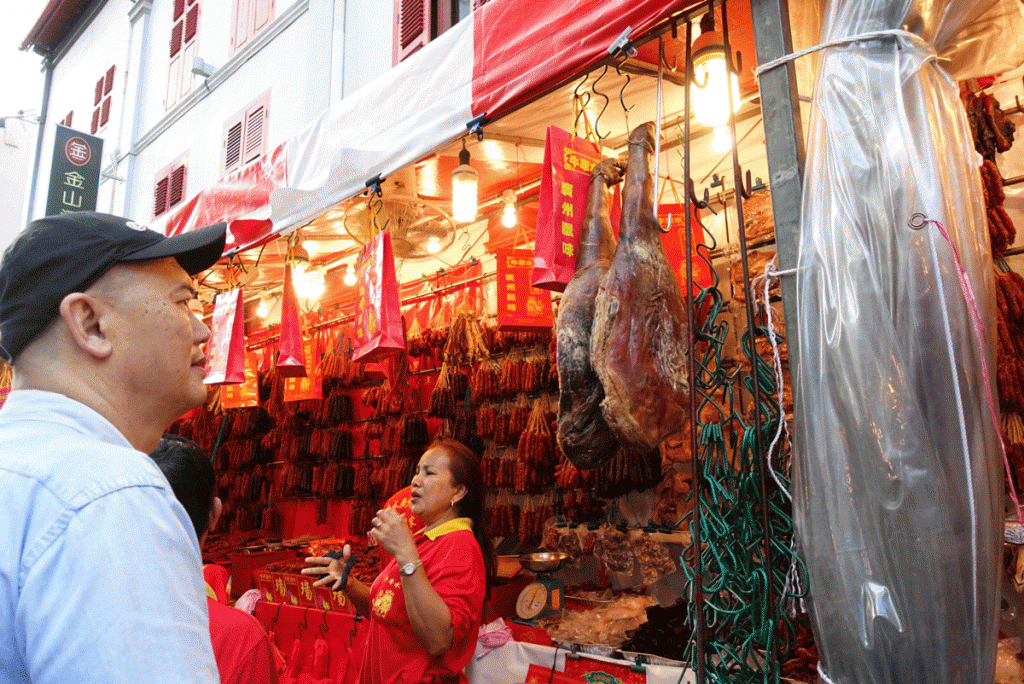
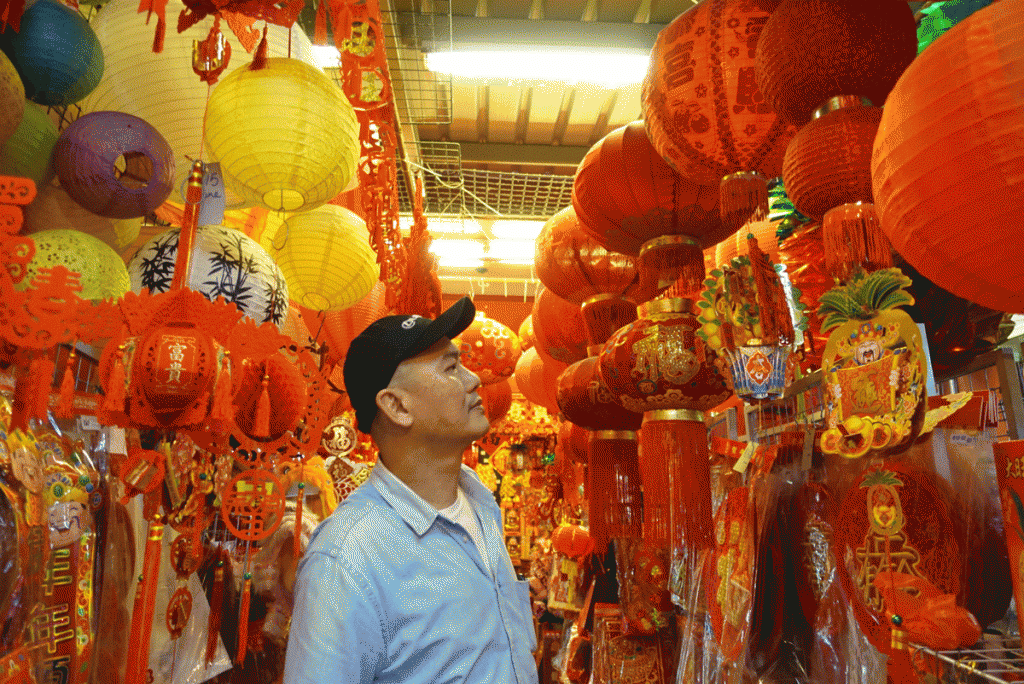
According to him, family gatherings during the festive season in the past were a blast—literally.
Before they were banned in the 1970s, Chan and his siblings used to play with firecrackers every Chinese New Year. “It’s not dangerous at all. Where is dangerous? Maybe if you light it up and don’t throw it away fast enough then your hand will pain and turn blue awhile. But it will heal.”
“You know we used to put firecrackers in a can, light it up and watch the can fly! We used to go visiting for one whole day,” he exclaims. “We go there from morning to night and no one is allowed to go anywhere.”
He compares this to Chinese New Year visiting today where people have the habit of only staying in one place for a maximum of two hours before moving on to the next destination.
Ironically, it seems that the smaller our families get, the lesser time we spend with each other. In fact, Chan later confesses to me that he’s contemplating working over this year’s festive period. He has no choice, he says. “Now both parents need to work to survive. Everyone is out.”
“Last time we were so free. We used to make our own goodies and kuehs you know,” he shakes his head. “Decorations also last time used to make it ourselves.”
He gestures to a decorative pineapple, half my size, hanging outside a shop. “You see this kind so big, how to fit into the house? We made small small ones, from paper.”
Now all his family has for decorations are some old prosperity signs and a battered pineapple that he’s recycled over the years.
It seems that for Chan, Chinese New Year has lost much of its shine.
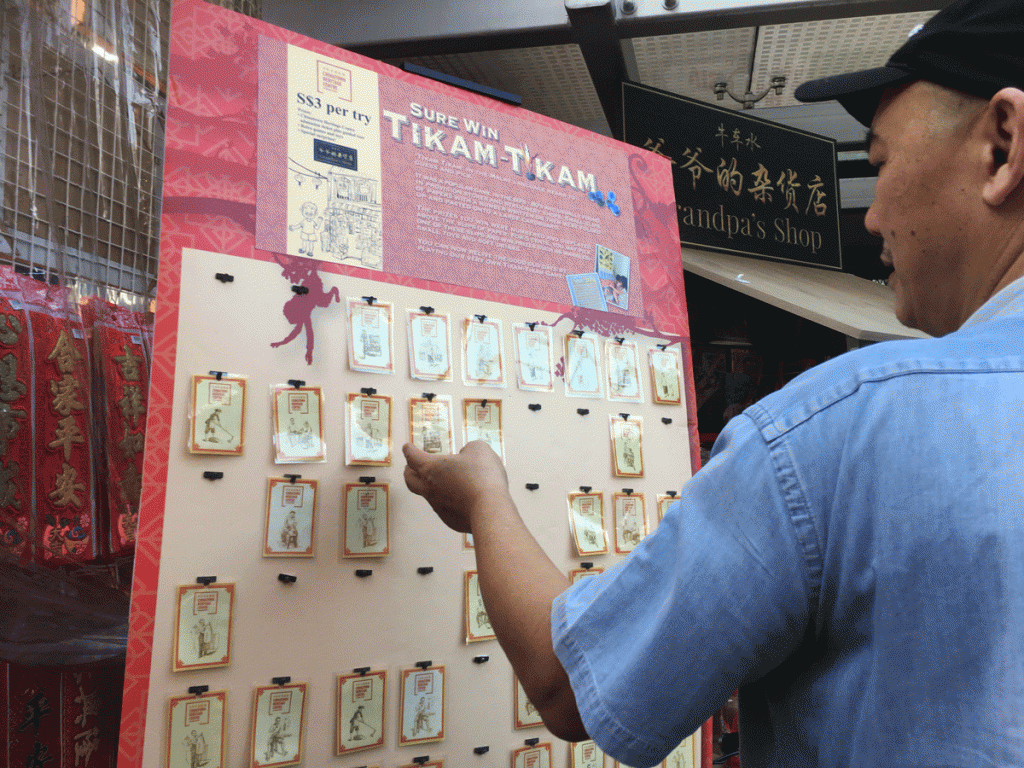
On the walls of one of the stores at the bazaar are displayed the twelve zodiacs and their career, luck, wealth, romance and health predictions for the year.
Chan’s an Ox, I’m a dog.
“Ox has four luck this year. Dog only three,” he observes.
Later, as we shuffle past a Singapore Pools outlet, I see his face light up. In classic Singaporean fashion he asks, “Are you going to buy 4D? Look, so many people queueing.”
When I remind him of my bad luck this year he lets out a tsk-sound.
“We need to buy sometimes. Sometimes it’s luck you know. If you strike, this new year is going to be very good for you already. If I win I don’t need to be a taxi driver anymore. Why drive taxi when you have ten million?”
We end up passing on buying 4D, and instead find ourselves before a Tikam Tikam [guessing] booth. Chan suggested we try it “for fun,” and because it only costs three dollars.
We spend a few seconds deliberating over which card to open while a stall attendant hovers nearby, a mix of curiosity and amusement on his face. Finally, we narrow it down to just two cards but still can’t come to a decision. As the luckier one between us, I let him make the final call.
We win a game of snakes and ladders. I get to keep the prize.
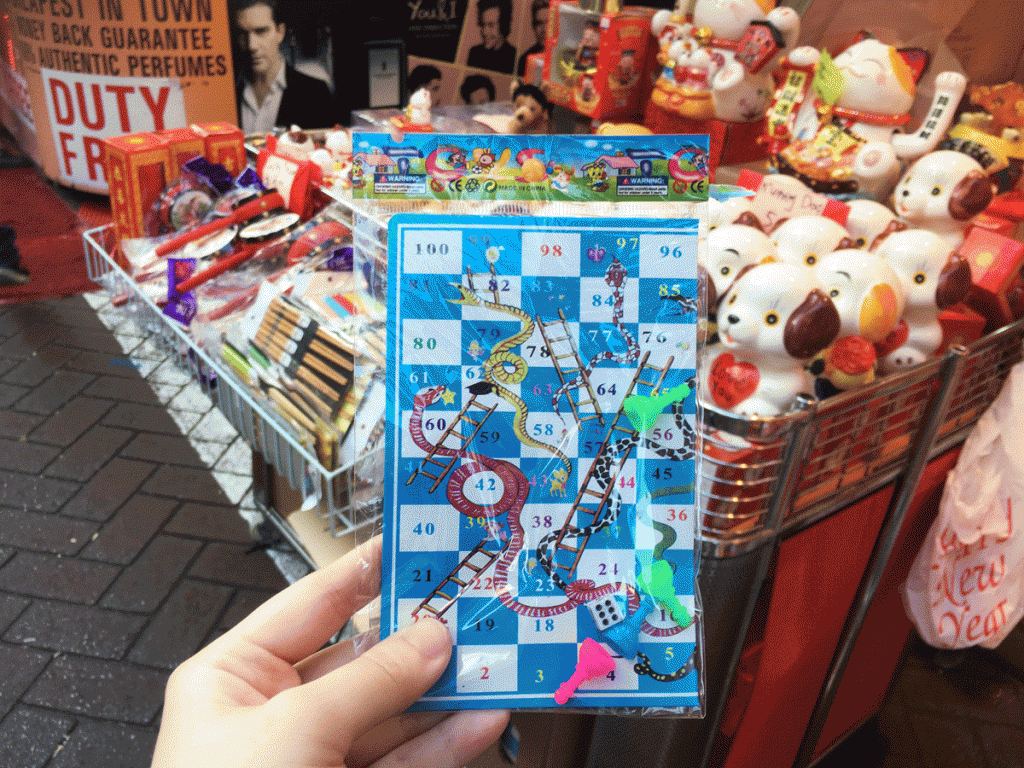
After circling the market another two more times, I’ve come to the conclusion that there is indeed, little to see. The bazaar may boast to hold 420 stalls, but they don’t mention that at least half of the stalls are duplicates of one another.
Moreover, I didn’t know it was physically possible, but the crowd is actually starting to thicken.
Eventually, we agree it’s time to go. Just before Chan and I part ways, he to his car and I to the MRT, he flashes me a rare smile.
“Thank you for today, it was good. It was something different from sitting down all day.”
I reply, “No, thank you.”

